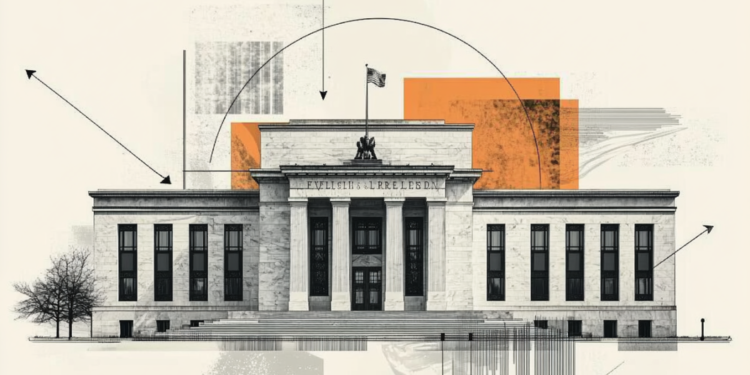Snap’s stock collapse that reversed momentum in tech and disappointing PMI data that reignited recession fears sent Wall Street plummeting, but it still posted its biggest weekly gain in a month.
In particular, the industrial index Dow Jones retreated against 0.4% and closed on 31,900 unitsthe enlarged S&P 500 suffered losses 0.9% at 3,963 unitswhile the greatest pressures were exerted on the technologically weighted one Nasdaq which retreated against 1.9% at 11,834 units.
At the level of the week, however, Dow Jones strengthened by approx 2%The S&P 500 recorded +2.6% and Nasdaq despite today’s dip found in +3.3%.
Tech, which had led the previous few days’ mini-rally, took a major step back after the lull in Snap’s numbers weighed on broader industry sentiment ahead of next week’s Big Tech results.
In particular, Snap posted an adjusted net loss of 2 cents per share, double what the market expected and saw revenue of $1.11 billion versus expectations for $1.4 billion, as its stock tumbled by almost 40%.
“Snap weighs badly on tech and tech related,” Kent Engelke, chief analyst at Capitol Securities, told Marketwatch.
Although earnings estimates are adjusted for inflationary pressures, tightening financial conditions and growing recession fears, “if you miss expectations, you get crushed,” he said.
Notably, the stock of Facebook parent Meta lost 7.6%, Google parent Alphabet lost 5.6% and Pinterest plunged 13.6%.
“Snap’s results came as a warning to other Big Techs that rely on ad revenue,” Ipek Ozkardeskaya, senior analyst at Swissquote, said in a note.
Meanwhile, Twitter saw its revenue fall 1% in the quarter from a year ago, posting its first annual decline since the middle of the pandemic in 2020, but its stock fell slightly by 0.8%.
The popular social network added 8.8 million new users during the quarter, as the market predicted, while it blamed Elon Musk for the decline in revenue, citing “uncertainty related to the impending acquisition.”
Weighing down the Dow Jones was Verizon, which closed down 6.7% after it reported results, downgrading its forecast for the year amid a slowdown in subscribers.
In any case, the investment climate has been boosted in the last few days by the corporate results which exceed – albeit low – expectations.
Notably, with nearly 21% of S&P 500 companies reporting earnings, 70% have beaten market estimates, according to FactSet.
Sentiment today, however, appeared to be heavily weighed on the release of preliminary PMI data, which showed that US business activity contracted in July for the first time since 2020.
In particular, S&P Global’s preliminary composite PMI fell 4.8 points to 47.5, the lowest level seen since May 2020 amid the pandemic.
Characteristically, excluding the first months of the pandemic with strict lockdowns, the reading was the lowest since the 2009 global financial crisis.
“The preliminary PMI data for July shows a worrying deterioration in the economy,” said S&P Global Market Intelligence Chief Economist Chris Williamson.
“Manufacturing has frozen and the service sector’s recovery from the pandemic has been reversed as demand is weighed down by rising living costs, higher interest rates and a negative economic outlook,” he added.
It is noted that similar trends were shown earlier today by the Eurozone PMI, which fell to a 17-month low in July.
Source: Capital
I am Sophia william, author of World Stock Market. I have a degree in journalism from the University of Missouri and I have worked as a reporter for several news websites. I have a passion for writing and informing people about the latest news and events happening in the world. I strive to be accurate and unbiased in my reporting, and I hope to provide readers with valuable information that they can use to make informed decisions.







